SPC holds national meeting of presidents of high people’s courts
The national meeting of presidents of high people's courts was held on Jan 14, to learn the guiding principles of the top leadership's instructions on the country's political and judicial work, to summarize the courts' work in 2023 and make work plan for 2024. Zhang Jun, president of the Supreme People's Court (SPC), attended and addressed the meeting.
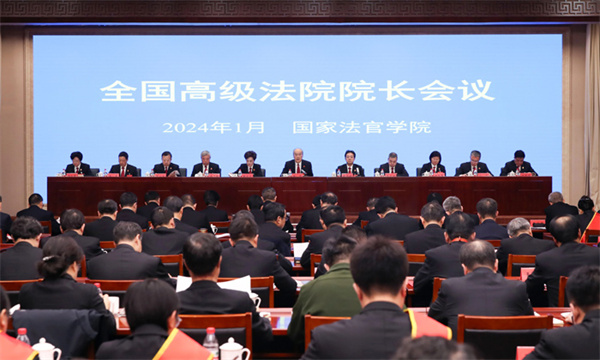
The national meeting of presidents of high people's courts is held on Jan 14 at the National Judges College. Zhang Jun, president of the Supreme People's Court (SPC), attends and addresses the meeting. [Photo/court.gov.cn]
It was noted at the meeting that over the past year, courts nationwide have made solid progress in modernizing judicial theories, mechanisms, systems and management to serve the building of a modern socialist country in all respects.
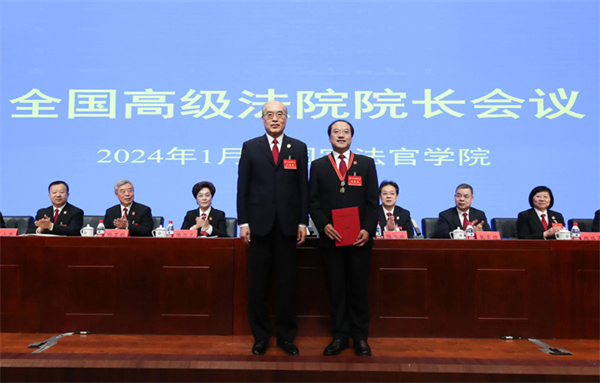
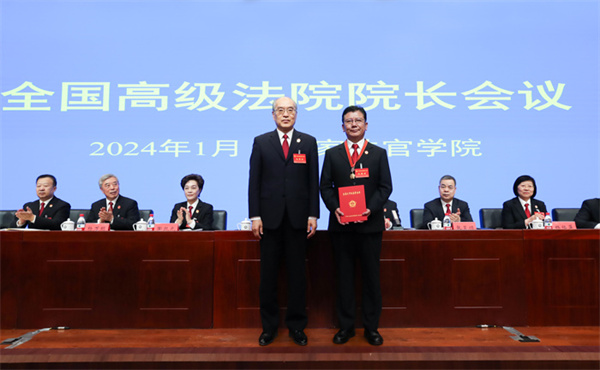
Zhang Jun awards Tianping commemorative medals to individuals who have served in people's courts with good performance for 30 years or in courts of remote alpine areas for 20 years.. [Photo/court.gov.cn]
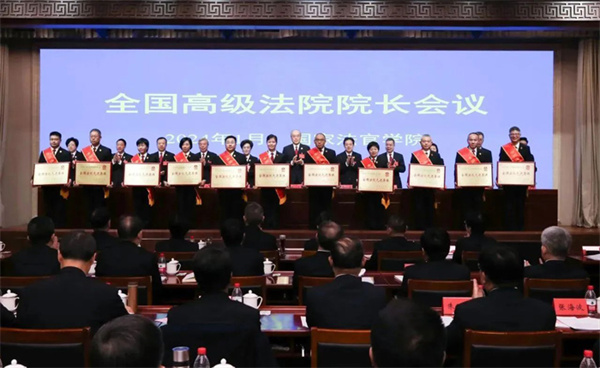
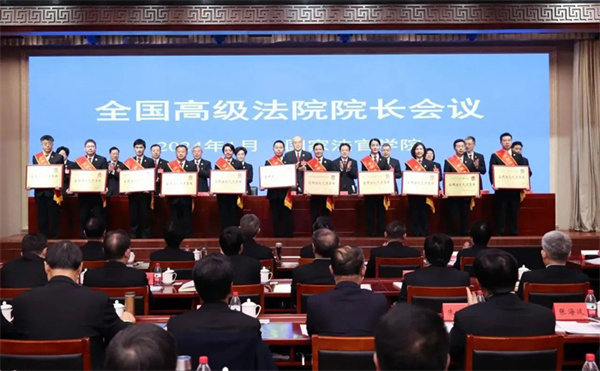
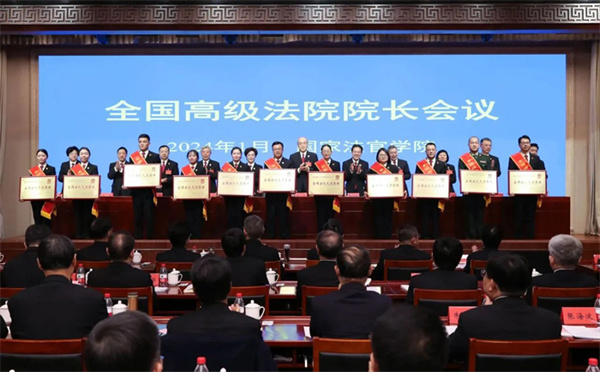

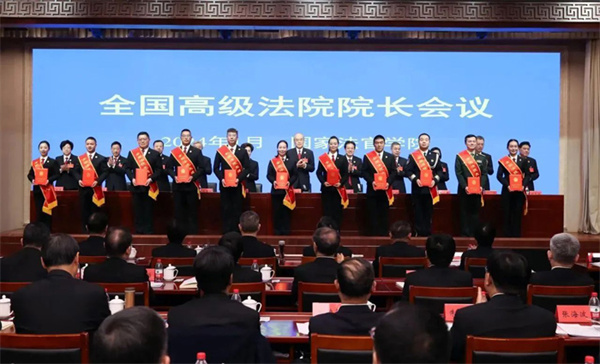
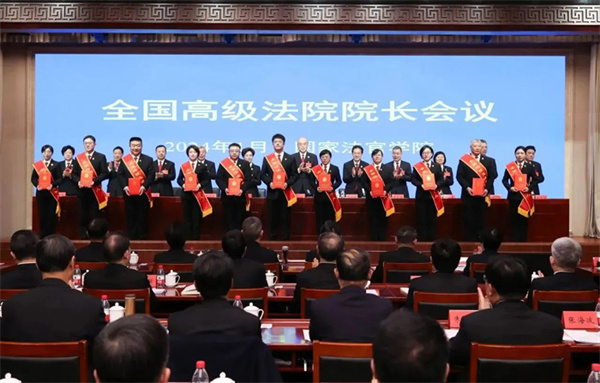
The meeting commends outstanding units and individuals of courts nationwide for the years 2021 and 2022. [Photo/court.gov.cn]
With focus on quality and efficiency in judicial work, instructions have been given at the meeting for courts' work in 2024 in regard to the following perspectives:
- To adhere to the Party's absolute leadership over judicial work and ensure fairness and efficiency in the adjudication of typical cases and formulation of judicial policies.
Within the legal framework, courts are required to balance protection and punishment, leniency and severity, and strictness and benevolence, in order to better serve the goal of seeking progress while maintaining stability. They should highlight the role of judicial policies and align them with other policies, and effectively signal policy guidance by handling individual cases, to achieve collaboration between judicial and other policies.
- To always bear in mind the "great cause of the nation" and focus on fulfilling duties to promote the Chinese modernization.
Courts nationwide should combine criminal punishment with comprehensive governance to promote the long-term stability and peace of the country. They are required to make good use of punitive damages in accordance with the law to serve innovation-driven development, and continue to optimize the legal environment for the development and growth of the private economy. The effectiveness and credibility of foreign-related judiciary should be enhanced by ensuring equal protection and national treatment in fulfilling international obligations.
- To adopt a people-centered approach and enable the public to feel the presence of fairness and justice.
Courts need to handle cases that may seem trivial but bear directly on public support as if they were pursuing charges themselves. They should persistently work to genuinely address the urgent needs of vulnerable groups and those in difficulty by effectively utilizing legal and judicial policies, and actively promote the implementation of the people's assessor system.
- To strengthen the management of adjudication in accordance with laws, deepen judicial reform and improve the quality and efficiency of judicial work.
Courts at all levels should establish a holistic management perspective and integrate political building, case management, adjudication oversight and overall staff assessment. A problem-oriented approach should be adopted and dynamic management be highlighted, and the management should be carried out with a developmental perspective and focus on key areas. Courts are required to reinforce management and adjudication responsibility, foster a data-driven mindset, and empower judicial management with data and information technology, to promote the modernization of judicial work.
- To enhance judicial work at grassroots level and strengthen infrastructure support to advance the modernization of judicial work.
Courts are expected to promote the Fengqiao Experience in the new era and explore their own litigation-source governance models. More assistance should be provided to the grassroots courts that are in need of support in various respects. Research on judicial theories and publicity on judicial policies should be strengthened.
- To practice comprehensive and strict governance of the Party and forge a competent court team featuring loyalty, integrity and responsibility.
The meeting also commended outstanding units and individuals of courts nationwide for the years 2021 and 2022.
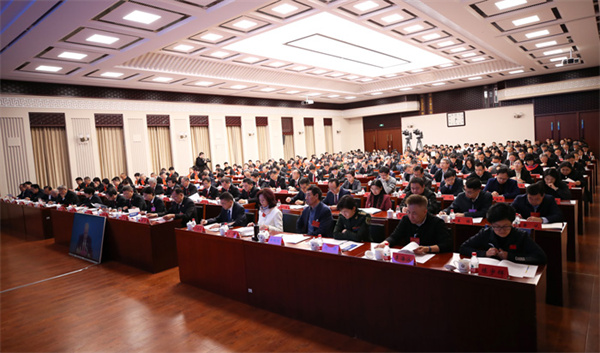
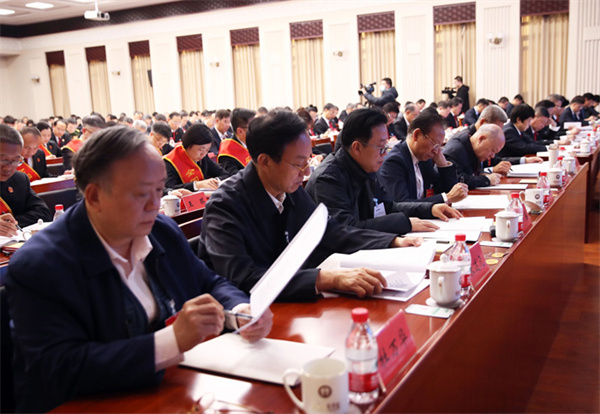
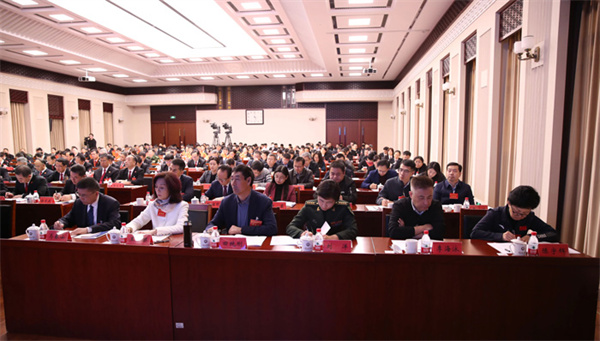
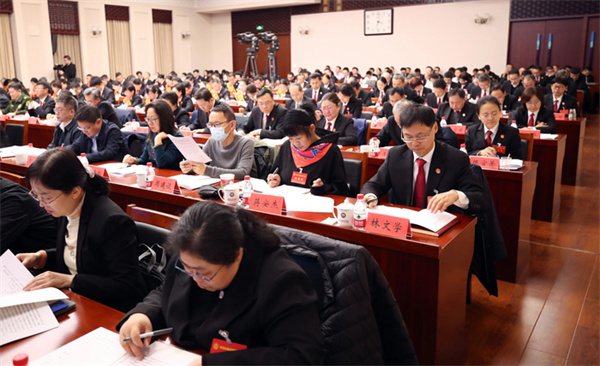
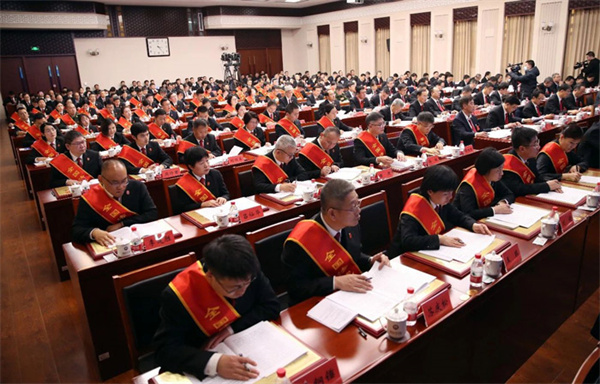
Secretaries of leading Party members groups and presidents of high people's courts, deputies to the National People's Congress, members of the National Committee of the Chinese People's Political Consultative Conference, leading officials of relevant departments of central and State organs, leading officials of the discipline inspection and supervision group of the Central Commission for Discipline Inspection and National Supervisory Commission stationed at the SPC, department heads at the SPC, representatives of outstanding units and individuals from courts nationwide, and journalists attend the meeting onsite. [Photo/court.gov.cn]









